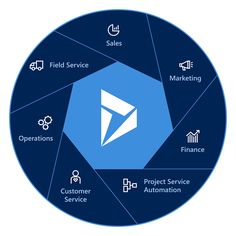In the competitive world of e-commerce, businesses must focus on building strong relationships with customers to drive sales, improve retention, and offer personalized experiences. Customer Relationship Management (CRM) software is essential for managing customer interactions, analyzing data, and automating marketing campaigns. For e-commerce platforms, the right CRM can make the difference between an average shopping experience and a personalized one that keeps customers coming back. Here are some of the best CRM software options for e-commerce platforms.
1. Klaviyo
Klaviyo is a top CRM platform specifically designed for e-commerce businesses. It integrates seamlessly with major e-commerce platforms like Shopify, BigCommerce, and WooCommerce. Klaviyo specializes in email marketing automation and personalized messaging, making it a go-to choice for businesses looking to enhance customer engagement.
Key Features:
- Advanced email marketing automation
- Integration with Shopify, BigCommerce, WooCommerce
- Personalized product recommendations
- Data-driven segmentation
2. HubSpot CRM
HubSpot CRM provides powerful tools for e-commerce businesses, including email marketing, sales automation, and reporting. While not solely designed for e-commerce, its ability to integrate with platforms like Shopify makes it a great option. HubSpot also offers advanced tracking features that help businesses monitor customer behavior, personalize interactions, and optimize conversion rates.
Key Features:
- Free core CRM functionality
- Integration with major e-commerce platforms
- Marketing automation and email marketing
- Customer journey tracking and analytics
3. Salesforce Commerce Cloud
Salesforce Commerce Cloud is one of the most comprehensive CRM solutions for e-commerce businesses. It provides powerful features for managing customer relationships, personalizing the shopping experience, and automating marketing campaigns. Its AI-powered features help e-commerce companies offer tailored recommendations and personalized product experiences.
Key Features:
- AI-powered product recommendations
- Seamless integration with e-commerce platforms
- Marketing automation and campaign management
- Multi-channel personalization
4. Drip
Drip is a CRM built specifically for e-commerce platforms. It offers advanced marketing automation and personalized communication to help businesses boost customer engagement and sales. Drip integrates easily with Shopify, WooCommerce, and other e-commerce platforms, enabling businesses to track customer behavior and tailor marketing messages.
Key Features:
- Deep e-commerce platform integration
- Advanced email and SMS marketing automation
- Customer segmentation and behavior tracking
- Personalization of offers and content
5. Zoho CRM
Zoho CRM offers a highly customizable solution for e-commerce businesses looking for an affordable CRM option. With Zoho, businesses can track customer interactions, automate follow-up emails, and generate detailed reports. Zoho integrates with popular e-commerce platforms and provides a range of extensions to customize your sales and marketing approach.
Key Features:
- Affordable pricing plans
- Integration with e-commerce platforms
- AI-powered insights and sales automation
- Multi-channel customer support
6. ActiveCampaign
ActiveCampaign offers one of the most powerful automation platforms for e-commerce. Its CRM capabilities include email automation, sales follow-up, and customer tracking. It integrates easily with Shopify and WooCommerce, making it ideal for e-commerce businesses that want to automate marketing tasks and manage customer data effectively.
Key Features:
- Advanced marketing automation
- Seamless Shopify and WooCommerce integration
- Dynamic content personalization
- Multi-channel automation for email and SMS
7. Neto
Neto is an all-in-one e-commerce platform that includes built-in CRM functionality. It provides features for managing customer relationships, automating marketing tasks, and integrating seamlessly with email marketing and sales channels. For businesses looking for an all-in-one solution, Neto is a solid choice.
Key Features:
- Built-in CRM for e-commerce
- Inventory and order management
- Email marketing integration
- Customer segmentation and automation
8. BigCommerce CRM
BigCommerce’s built-in CRM system allows users to manage customer data, track orders, and enhance customer relationships. For e-commerce businesses already using BigCommerce as their platform, its CRM functionality is an excellent way to keep everything in one place, allowing seamless customer engagement and data-driven marketing campaigns.
Key Features:
- Native CRM functionality
- Integration with third-party marketing tools
- Customer behavior tracking and analysis
- Personalized marketing campaigns
9. Omnisend
Omnisend is an e-commerce CRM platform designed for omnichannel marketing, integrating email, SMS, push notifications, and more. It provides tools to automate marketing workflows, segment customers based on behavior, and personalize communication. Omnisend’s powerful automation capabilities are ideal for e-commerce businesses looking to scale their marketing efforts.
Key Features:
- Omnichannel marketing (email, SMS, push)
- Pre-built automation workflows
- Integration with Shopify, BigCommerce, and WooCommerce
- Customer behavior tracking and segmentation
10. Mailchimp
Originally known as an email marketing platform, Mailchimp has evolved into a comprehensive CRM solution. It’s ideal for e-commerce businesses that want to integrate email marketing, customer segmentation, and automation without a steep learning curve. Mailchimp also integrates easily with Shopify, WooCommerce, and other platforms, making it a versatile option.
Key Features:
- Email marketing and automation
- Easy integration with e-commerce platforms
- Pre-built customer journeys
- Detailed reporting and insights
Conclusion
Choosing the right CRM for your e-commerce platform can significantly impact your business’s ability to manage customer relationships, automate marketing efforts, and personalize the shopping experience. The CRM tools listed above cater specifically to the needs of e-commerce businesses, offering features such as automation, customer behavior tracking, and seamless integration with major platforms like Shopify and WooCommerce. By investing in the right CRM, your business can not only streamline operations but also enhance customer satisfaction and drive sales.
